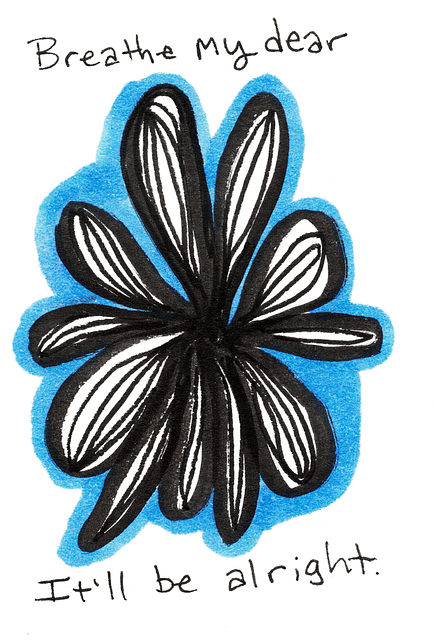In today's diverse society, effective mental healthcare requires therapists to embrace cultural sensitivity, understanding unique beliefs and traditions that shape perceptions of mental health. Boulder Sexual Addiction Therapy addresses this by offering personalized sessions tailored to individual clients' cultural backgrounds, promoting inclusive care. They incorporate self-care practices and mental wellness journaling exercises, enhancing therapy outcomes for diverse communities. Efforts to reduce stigma must include cultural nuance, as bias and misunderstandings can hinder treatment. Mental wellness coaching programs are crucial tools for professionals navigating cross-cultural interactions.
In today’s diverse society, cultural sensitivity in mental healthcare is paramount. The practice of therapy across different cultures presents unique challenges, from implicit biases to misunderstandings. This article explores these complexities, focusing on strategies for culturally sensitive care at Boulder Sexual Addiction Therapy. We delve into the importance of understanding cultural diversity, identifying and overcoming biases, and implementing practices that honor and embrace varied perspectives, ultimately enhancing therapeutic outcomes for all clients.
- Understanding Cultural Diversity in Mental Healthcare
- Challenges and Biases in Cross-Cultural Therapy
- Strategies for Culturally Sensitive Practice at Boulder Sexual Addiction Therapy
Understanding Cultural Diversity in Mental Healthcare

In today’s diverse society, mental healthcare practices must embrace cultural sensitivity to effectively support individuals from various backgrounds. Understanding cultural diversity goes beyond recognizing racial and ethnic differences; it involves appreciating the unique beliefs, values, and traditions that shape an individual’s perception of mental health and illness. For instance, what may be considered a healthy coping mechanism in one culture could be viewed as disruptive or unacceptable in another. This is particularly relevant in areas like Boulder Sexual Addiction Therapy, where cultural nuances play a significant role in treatment outcomes.
Mental Health Policy Analysis and Advocacy highlights the importance of culturally competent care in improving access to mental wellness services for all communities. By integrating Cultural Sensitivity in Mental Healthcare Practice, professionals can ensure that their approaches are inclusive and respectful, fostering trust and encouraging open communication. Moreover, understanding cultural contexts enables therapists to tailor interventions, making them more effective and relevant to the client’s experience. This personalized approach not only enhances therapy outcomes but also strengthens the bond between therapist and client, as evidenced through Mental Wellness Journaling Exercise Guidance.
Challenges and Biases in Cross-Cultural Therapy

Providing culturally sensitive care is a significant challenge in mental healthcare, especially when working with diverse client populations. Therapists may face biases and misunderstandings that hinder effective treatment, particularly when dealing with issues like sexual addiction. For instance, what is considered normal sexual behavior varies across cultures, and therapists must be aware of these differences to avoid pathologizing or stigmatizing clients from non-Western backgrounds. This challenge is exacerbated by the persistent mental illness stigma reduction efforts, which often lack cultural nuance.
In Boulder Sexual Addiction Therapy, for example, therapists should incorporate Mind Over Matter principles in their practices, fostering an environment that respects and embraces diverse perspectives. Mental wellness coaching programs development can play a crucial role here by equipping professionals with tools to navigate complex cross-cultural interactions, ultimately improving patient outcomes.
Strategies for Culturally Sensitive Practice at Boulder Sexual Addiction Therapy

Boulder Sexual Addiction Therapy recognizes the importance of cultural sensitivity in providing effective mental healthcare services. To ensure inclusive and compassionate care, they employ several strategies that cater to diverse populations. One key approach is offering tailored therapy sessions, where therapists adapt their methods based on individual cultural backgrounds, beliefs, and preferences. This personalized touch helps clients feel understood and encourages open communication.
Additionally, Boulder Sexual Addiction Therapy promotes self-care practices like mood management techniques and burnout prevention strategies specifically designed to address the unique challenges faced by individuals from various cultural communities. They also provide mental wellness journaling exercise guidance, enabling clients to reflect on their experiences, track progress, and cultivate a deeper awareness of their mental health.
Mental healthcare practices, including those at Boulder Sexual Addiction Therapy, must embrace cultural sensitivity to ensure effective treatment and address inherent biases. By understanding cultural diversity and implementing strategies that respect individual beliefs and values, therapists can create a welcoming environment for all clients. This approach not only enhances therapeutic outcomes but also fosters trust and promotes positive mental health journeys within diverse communities.














